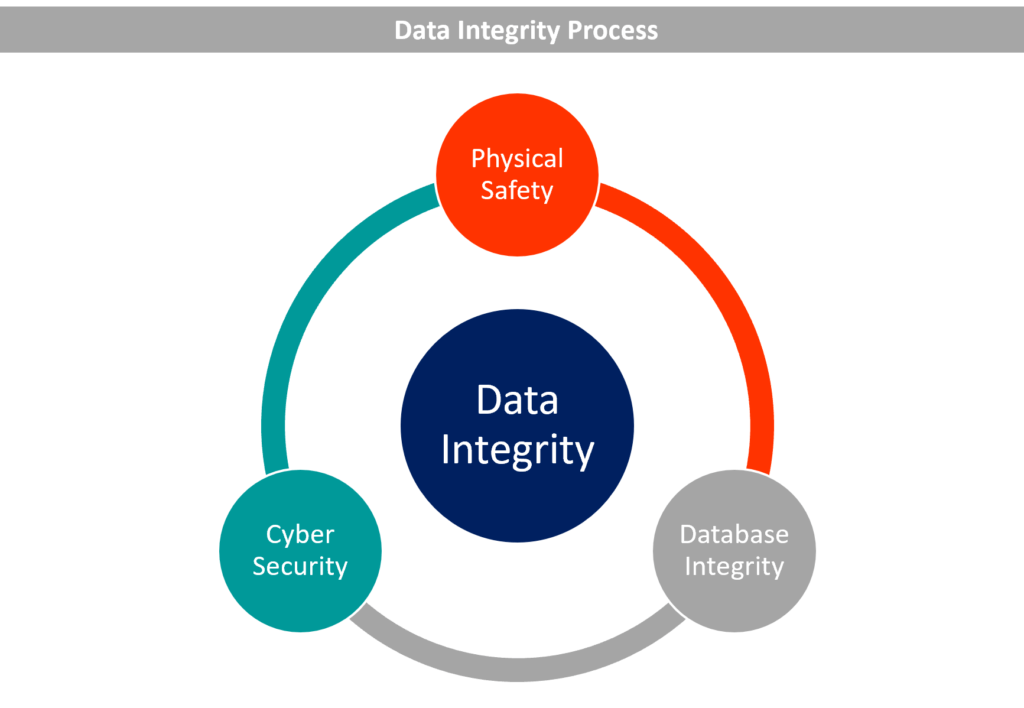Data Integrity as a Process and as a State

Data integrity can be understood both as a process and as a state within the context of information management. Let's explore each perspective:
1. Data Integrity as a Process:
- Definition: Data integrity as a process refers to the ongoing activities and measures taken to ensure that data is accurate, consistent, and reliable throughout its lifecycle.
- Key Activities:
- Validation: Implementing rules and checks to ensure that data adheres to predefined standards, constraints, and business rules.
- Error Detection and Correction: Employing mechanisms, such as checksums or hash functions, to detect and correct errors or corruption in data.
- Audit Trails: Establishing logs and audit trails to track changes to data, including who made the changes, when, and what changes were made.
- Version Control: Managing versions of data to track changes over time and facilitate rollbacks in case of errors.
2. Data Integrity as a State:
- Definition: Data integrity as a state refers to the condition in which data is accurate, consistent, and unaltered. It is the result of successful implementation of data integrity processes.
- Indicators of Data Integrity State:
- Accuracy: Data values reflect the true and correct information as intended by the data creator.
- Consistency: Data maintains uniformity and coherence across databases, systems, or applications.
- Reliability: Users can have confidence in the reliability of data for making decisions, conducting analyses, and performing tasks.
- Completeness: Data is complete, containing all the required and expected information.
- Security: Data is secure, protected from unauthorized access, modifications, or deletions.
Relationship between Process and State:
-
Process Leading to State: The process of ensuring data integrity involves various measures and checks that, when successfully implemented, lead to the state of data integrity. It's an ongoing effort to maintain data quality.
-
Continuous Monitoring: Achieving data integrity as a state is not a one-time event but a continuous effort. Processes for data validation, error detection, and monitoring need to be consistently applied to maintain the desired state.
-
Data Governance: Both perspectives are closely tied to data governance practices, which involve establishing policies, standards, and procedures to manage and protect data throughout its lifecycle.
Importance:
-
Decision-Making: Data integrity ensures that decisions made based on the data are accurate and reliable, contributing to informed decision-making.
-
Trust: A state of data integrity builds trust among users, stakeholders, and decision-makers in the quality and reliability of the data.
-
Compliance: In many industries, maintaining data integrity is crucial for compliance with regulations and standards.
In summary, data integrity involves both the ongoing processes to ensure data quality and the desired state where data is accurate, consistent, and reliable. It's a fundamental aspect of effective information management and is essential for organizations to derive value from their data assets.
Thank you.
